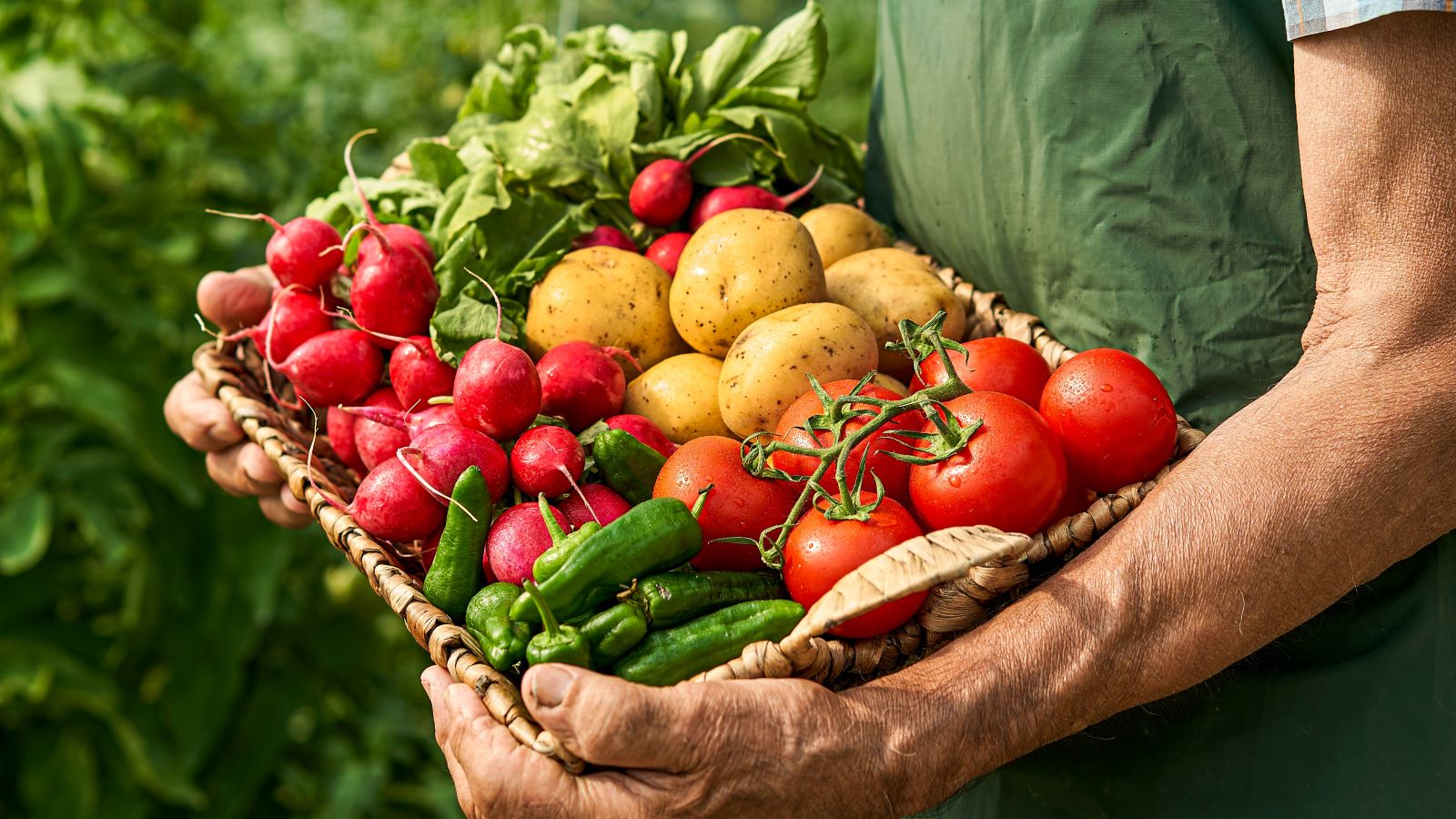If your doctor, your mom or your social media feed hasn’t already mentioned it – vegetables are good for you. But does it matter which you choose?
“Some vegetables pack more of a nutritional punch than others,” says Ulysses Wu, MD, chief epidemiologist at Hartford HealthCare. “The key is variety — and choosing vegetables rich in vitamins, fiber and antioxidants.”
So whether you’re trying to fight inflammation, support your immune system or just feel better overall, here are eight vegetables that deserve a regular spot on your plate.
Virtual care - when and where you need it
1. Watercress.
It’s not just a fancy garnish. Watercress is one of the most nutrient-dense foods you can eat — ranked even higher than kale in some studies.
“Watercress is often overlooked, but it has some great benefits,” says Dr. Wu. “It’s loaded with vitamin K, which supports bone health, and carotenoids that help protect your cells. I eat watercress every day – it’s one of the most antioxidant rich power foods you can find,”
Try tossing it into salads, sandwiches or soups for a quick nutrient boost. With a bitter, peppery taste, it’s great for enhancing flavor.
> Related: The 8 Best Fruits for Your Health
2. Beets.
Whether they’re in a can or a vibrant salad, beets are another solid choice.
Their deep red color comes from betalains, natural compounds with anti-inflammatory and antioxidant properties.
“Beets can help support liver function and blood flow,” says Dr. Wu. “They’re also rich in nitrates, which may improve endurance and heart health. I actually happen to eat these every day, too.”
Roast them, grate them raw into salads, or blend them into smoothies for an earthy, slightly sweet addition.
“Just don’t be surprised if they change the color of your urine,” Dr. Wu adds.
> Related: 5 Healthy Fall Foods to Add to Your Plate
3. Brussels sprouts.
These mini cabbages are full of fiber, vitamin C, and cancer-fighting compounds called glucosinolates.
“People love to hate Brussels sprouts, but when they’re roasted or sautéed properly, they can be delicious — and they’re incredibly healthy,” says Dr. Wu.
Try them halved and roasted with olive oil, garlic and a sprinkle of parmesan.
“As a child, I hated Brussels sprouts, but now I can’t get enough,” Dr. Wu adds. “Try shaving them into a slaw, and dressing it up with the usual toppings.”
> Related: 3 Reasons Why Watercress Is the Healthiest Vegetable
4. Seaweed.
You heard it here first – sushi is practically a vegetable.
Seaweed is rich in iodine, which supports thyroid function, along with vitamins A, C, and E. It also contains unique antioxidants that are hard to find in other vegetables.
“Seaweed is a good example of how expanding your palate can expand your nutrient intake,” says Dr. Wu. “You can even eat seaweed on its own, either roasted or flavored for a healthy snack.”
Look for dried seaweed snacks, toss wakame into miso soup, or try nori sheets for DIY sushi rolls.
> Related: Can Seaweed Help With Weight Loss?
5. Sweet potatoes.
Unlike regular white potatoes, sweet potatoes are rich in beta-carotene, a precursor to vitamin A that supports vision and immune health.
“They’re also high in fiber, especially if you eat the skin,” says Dr. Wu.
Roast them, mash them, or cube them and toss them into a salad for a little sweet-savory combo.
> Related: 3 Reasons to Eat More Sweet Potatoes
6. Swiss chard.
With bold stems and dark leafy greens, Swiss chard is as beautiful as it is healthy. It’s packed with magnesium, potassium, and vitamins A and K.
“It’s especially good for heart health and blood pressure regulation,” says Dr. Wu.
Sauté it with garlic, toss it into stir-fry or mix it into soups and stews.
Want a Weekly Dose of Health News?
7. Broccoli.
It’s popular for a reason. Broccoli is loaded with fiber, vitamin C, folate and sulforaphane, a compound that may help reduce cancer risk.
“Even with all the newer ‘superfood’ vegetables out there, broccoli still ranks among the best for long-term health,” says Dr. Wu.
Steam it, roast it or blend it into soups for a hearty texture.
> Related: 4 Reasons to Eat More Broccoli
8. Okra.
It’s rich in antioxidants, vitamin C and folate — and its unique texture comes from mucilage, a natural thickener that may help support gut health.
“Okra is one of those vegetables people either love or hate, especially because it can get gummy or slimy if cooked improperly. But it has real nutritional value,” says Dr. Wu.
Try it grilled, roasted or cooked into gumbo or curry to cut down on the sliminess.
> Related: 4 Ways to Put Your Fresh Vegetables to Work
Not sure how to add more vegetables to your diet?
You don’t have to do it overnight – just start adding more of these colorful vegetables into your weekly meal plan.
“Eating a colorful variety of vegetables is one of the best things you can do for your long-term health,” says Dr. Wu. “It supports your immune system, protects against chronic disease, and keeps your body functioning at its best.”
So skip the plain iceberg lettuce and go for something bold. Your body (and your taste buds) will thank you.



